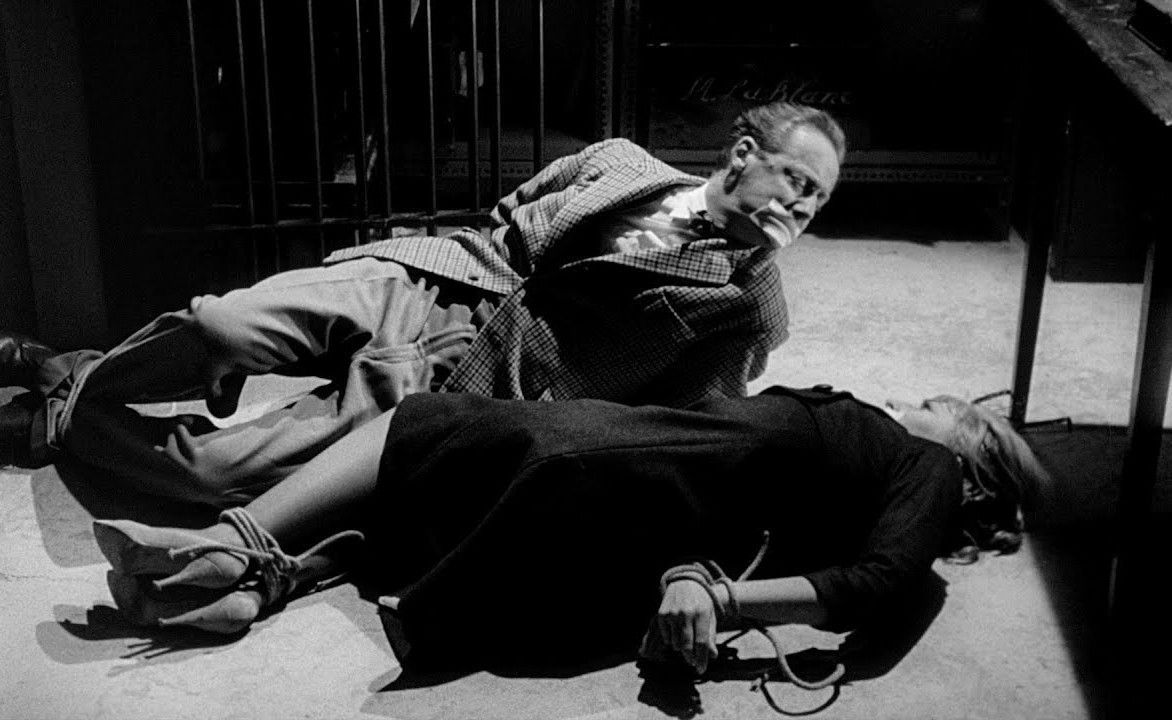Review of The Invisible Man
midlandsmovies • June 1, 2020

The Invisible Man (2020) Dir. Leigh Whannel
It’s strange to think that The Invisible Man was the last major studio release before we were forced into our hovels to endlessly browse Netflix and Amazon Prime. In fact, just four weeks after its cinema run, Universal and Blumhouse Productions made it available on-demand to help combat Covid-19 related boredom.
Now, it’s been released on DVD, Blu-ray and 4K so it only seems right to have another look at 2020’s most surprising hit.
From the opening minutes of The Invisible Man, writer and director Leigh Whannel promises something a little different. Gone is the big budget bombast of Universal’s other Dark Universe attempt (2017’s The Mummy), along with the schlocky blood and guts of Paul Verhoeven’s Hollow Man (2000) and the turn-of-the-century setting of H.G. Well’s original story.
Instead, Whannel shows the viewer that real life is, unfortunately, often far more terrifying than ghouls and spectres, and so he integrates the more fantastical elements of the tale within a highly relevant and disturbing thriller. Opening on Cecilia’s (Elisabeth Moss, in career-best form) tense escape from her abusive husband Adrian (Oliver Jackson-Cohen).
Before any of the film’s clever bait-and-switch scare tactics, we are made very much aware that Adrian is a true monster. Whannel’s script leans heavily into the psychological effects of trauma, supposedly killing off Adrian within the first twenty minutes to place Cecilia on the backfoot. Throughout the rest of the running time, her state of mind is consistently called into question.
Whannel incorporates the concept of gaslighting (a term taken from Patrick Hamilton’s 1938 play Gas Light), wherein an abuser, predominantly male, manipulates their partner into doubting their own memories and experiences. When Cecilia expresses her fears that Adrian may not be dead and that he is somehow watching and tormenting her even now, her family and friends question her state of mind. Like a true abuser, The Invisible Man strikes when there are no witnesses to intervene.
As the torments become more severe, Whannel shows an excellent sense of timing. A simple slow pan of the camera ratchets up the tension until it is excruciating. A single cloud of breath provides one of the most disturbing moments in the film.
This is not a case of a weak-willed victim though. Cecilia is an incredibly strong character, who takes the fight to the spectre from the early going. It provides some inventively choreographed sequences as we reach the half-way point, combining sudden shocks and extended cat-and-mouse chases to great effect.
Moss truly is one of this generation’s best actresses and she proves it here, elevating her character when it could have easily fallen into scream queen territory. Matching her is Jackson-Cohen, perhaps best known for his sympathetic portrayal of Luke Crain in Mike Flanigan’s The Haunting of Hill House. It’s a different story here. When Adrian’s façade slips, he’s a genuinely unsettling presence on screen.
It’s a shame that things feel a little looser towards the end. The big reveal manages to plausibly update Wells’ monster but the film itself is front-loaded, leaving little else to do but run through some of the highlights again in the build up to the final confrontation. The false-finishes and faster pace threaten to make Whannel’s Invisible Man far less believable. It is only just saved by the last scene, which provides some level of closure but that is suitably shrouded in shades of grey.
These issues aside, The Invisible Man is further proof that Blumhouse Productions is in the middle of a resurgence of sorts. After spending much of the last decade producing cut-and-paste horror films, efforts such as Jordan Peele’s Get Out, Whannel’s previous film Upgrade and David Gordon Green’s Halloween reboot have quietly transformed the company’s reputation.
It’s enough to make you hope that this remains a standalone feature, rather than been shoehorned into Universal’s Dark Universe. Bigger is not always better, and in this neat entry into the classic monster movie canon less is definitely more.
★★★
Matthew Tilt
Twitter @Matthew_Tilt
The DVD, Blu-ray and 4K releases all come with the same slate of extras. It’s all pretty standard stuff, with deleted scenes, commentary by Leigh Whannel and featurettes about the making of the film. A few items stand out, however. Elisabeth Moss’ interview about how she dealt with the challenges of playing Cecilia should offer some interesting insights, as should the cast talking about interacting with an invisible co-star. There’s also a behind-the-scenes look at how Leigh Whannel adapted The Invisible Man for a modern audience.





